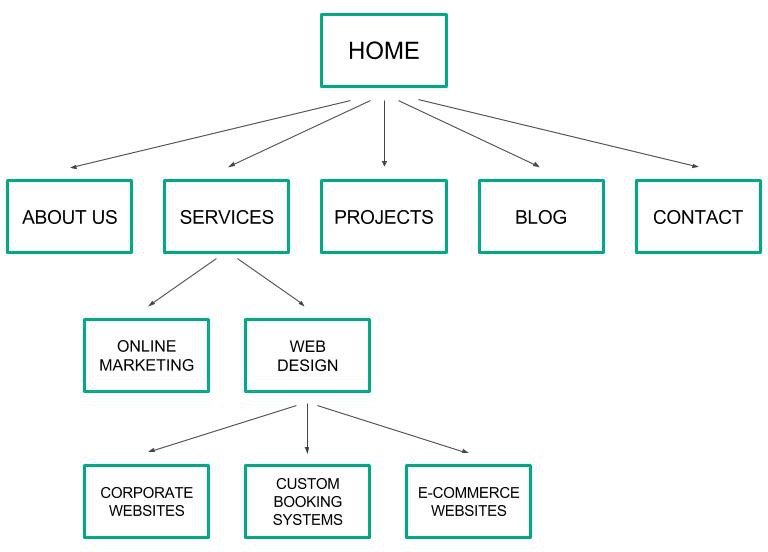How to get better rankings on Baidu – China’s No.1 search engine

While China has the second-largest economy in the world, its e-commerce market is the largest globally. Approximately 35.3% of the country’s retail sales take place online, a higher percentage than in any other country (Source: eMarketer). Given its dominance, you’d be forgiven for thinking that Google was China’s search engine of choice – but you’d be wrong. While it’s the undisputed champion of search engines worldwide, Google only ranks fifth in China, with only 1.54% market share, with the crown going to Baidu instead. Therefore it’s imperative for those in business to know how to optimise their websites for Baidu and reap the rewards that come with doing this successfully.
What is SEO?
SEO stands for search engine optimisation. The practice involves making changes to both your website and the content within it, in an effort to boost its position within organic search engine results. This results in more traffic, more potential customers finding your products or services and then being converted to customers and more business opportunities. There’s a handful of ways to achieve this. The most popular one, however, is to insert commonly searched-for keywords within the website’s text.
There are two kinds of search engine optimisation:
White Hat SEO: The goal of white hat SEO is to improve a website’s position for both the business and the visitor, using non-exploitative methods. Search engines like Baidu approve of these practices and even provide tools to help you.
Black Hat SEO: This focuses on exploiting the search engine’s flaws and usually comes at the expense of the visitor’s user experience. It’s not a long-term solution and it’s not recommended for legitimate businesses.
Creating Your Website

Even before you start thinking about content, registering your domain and finding a server should be done with an SEO-minded approach.
Your Domain: Your website address is the visitor’s first impression of who you are, what you do and what you can offer them. If chosen correctly, it can also help optimise your website. Here are some pointers when choosing your domain:
– It should be short and easy to remember.
– It should be relevant to the website’s theme or content.
– Suffixes can make your website appear more trustworthy or less so, so commonly used suffixes such as .com and .net are usually the best choices (though do note that suffixes have no bearing on how you rank on a Baidu search).
– Baidu provides Webmaster tools, including a URL optimisation feature that will help you gauge how effective your domain name is and suggest any changes if necessary.
Hosting: The server you opt for has a huge effect on how your website performs and the experience it provides for your visitors. Sub-par servers can negatively impact the ‘crawling’ abilities of search engines, including Baidu, making your website less visible. Therefore it’s vital you opt for a reputable provider that offers a stable service, quick speeds and doesn’t inhibit Baidu spider. Hosting your Chinese website in China with local servers will see you benefit from the smoother loading of your site each and every time someone clicks onto your site, giving you a long-term and sustainable competitive advantage over your international competitors in China – particularly when you move earlier or faster than them in this area (Source: Sinorbis).
ICP Licenses: There are two types of ICP requirements in the Chinese regulations: one is the ICP license and the other is an ICP filing. The type of ICP you need to apply for depends on what type of business or service you plan to provide in China. If you are creating a profit-making website that will operate in China, you need to have an ICP license; however, if your website is one which will not generate profits (for example, a simple content-based website), an ICP filing is all that you require (Source: Sinorbis).
Prepping Your Website to Be Baiduspider-friendly

Baiduspider is Baidu’s crawler – a programme designed to assess how relevant your website is to someone’s search. It’s where your SEO keywords and the structure of your website come into play.
The best way to think of it is as an everyday visitor to your site. The easier it is for a visitor to find what they’re looking for, the easier it will be for Baiduspider. There are two main things to keep in mind here:
Readability: Many websites today are fully designed with Flash or Ajax. While they might look appealing, they inhibit Baiduspider because it can only read text. Therefore, any SEO efforts within your content will go unseen. So while you can certainly use Flash or Ajax on your website, make sure all relevant content or links are displayed in text.
Structure: Having a clear and cohesive website structure helps both visitors and Baiduspider easily navigate your website. A tree structure usually works best here. Simply put, a tree structure features a home page, channels, and then article pages branching out from each of them:

Source: Kreezalid
It’s also important to include a navigation bar on every page, to better help users and Baidu to find their way back from them. In summary, what’s good for your users is usually good for search engine optimisation.
Your Content: The website’s content is naturally the most important part of Baidu SEO. It’s imperative that it’s original, high quality and relevant to the purpose of the website. Adding unrelated content to your website will dilute your SEO-rich content, and consequently harm your ranking.
Page titles: Page titles are important and should be optimised with keywords. It’s important that they’re concise and in direct relation to the content on the page, so Baidu is able to determine what’s there.

Keywords: Keywords are the bread and butter of search engine optimisation and finding the right ones to insert within your content requires its own research. In practice, you need an understanding of what your target demographic would search for when using Baidu.
While common sense will provide you with a number of keywords, you can find additional ones from:
– The autocomplete feature in Baidu’s search box
– The list of related searches on the results page
– Pay-for programmes and SEO specialists – who’ll do the hard work for you
For most however, Baidu Index will suffice. This tool keeps you up to date on how popular and effective a keyword is, along with related alternatives and current trends. The results can be viewed by the age, gender, and location of your target demographic.
While you might be more familiar with Google Adwords Keyword Planner, however, you need to develop proficiency in Baidu Tuiguang when you look to the Chinese market.
Other things to remember:
– Usability should be at the forefront of your mind when optimising your text. Don’t make it unreadable.
– You can further improve optimisation by allowing user interaction, in the form of commenting, reviewing
and voting.
– Never translate your keywords from English to Chinese via Google Translate. There’s a strong chance your result will be inaccurate or incomplete and therefore useless when it comes to SEO.
At its core, Baidu shares a lot of similarities to Google when it comes to search engine optimisation practices. Once you develop an understanding of the differences and the different tools you need to use, it puts you in fantastic stead for maximising the potential of your website and online business.
How Melchers can support foreign businesses in China
Melchers provides a complete end to end digital-execution service for Western-brands wishing to define a strategy for China through to market implementation. We manage the client relationship in Europe and China, to ensure strategy, planning and projection is set out at the onset. Local teams based in Shanghai and Beijing oversee campaign implementations. Among our digital marketing services, we design, build and optimise web and mobile presences in China to drive customer acquisition including SEO set-up and optimisation services. Our team engages in design, content creation and management of your website and social media accounts while driving digital marketing campaigns.
To learn more about how we can support you, please contact us at marketing@bj.melchers.com.cn.


